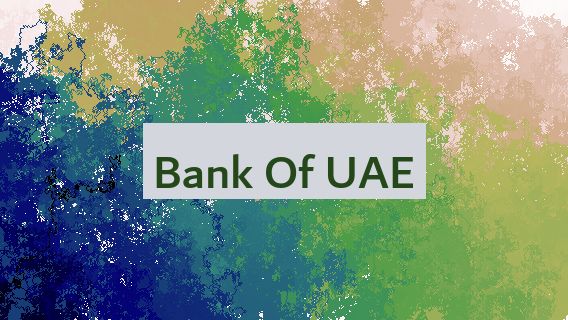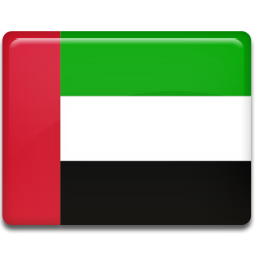Bank Of UAE 🏦 🇦🇪
UAE is a federation of seven Emirates in the Middle East. The UAE has a strong banking sector as a global economic and financial hub. Public, commercial, and foreign banks provide a variety of financial services and products in the UAE. The UAE Central Bank closely monitors UAE banks (CBUAE).

Historically, the banking sector in the UAE has been under the control of the UAE Central Bank. This has enabled the UAE to grow its banking sector into a highly successful and competitive industry, making it one of the world’s most attractive banking destinations.
The Central Bank of the United Arab Emirates (CBUAE) is the apex authority responsible for the regulation and supervision of the banking sector in the UAE. In addition to being the central bank, the CBUAE also acts as the regulator and supervisor of the banking sector. It is responsible for setting the legal framework, rules, and regulations which govern the banking sector in the UAE, and is also responsible for formulating monetary policy and ensuring the quality of banking services.
The UAE banking sector is highly developed and is dominated by a few large players, such as Emirates NBD, Abu Dhabi Commercial Bank, First Abu Dhabi Bank, and Dubai Islamic Bank. These large banks offer a variety of banking services and products, from deposit accounts, and loans to credit cards, investments, and insurance.
The UAE banking sector offers a variety of traditional banking services, such as deposit accounts, credit cards, and loans. Banks also offer consumer banking products such as credit cards and debit cards, as well as retail banking services such as current and savings accounts, investments, loans, and mortgages. Banks in the UAE also offer a range of investment services, such as mutual funds, stocks, bonds, and commodities.

Banks in the UAE also offer a variety of specialized banking services, such as Islamic banking, Islamic banking products, and capital markets services. Islamic banking is a specialized form of banking that is based on Islamic law and is designed to meet the financial needs of Muslims. Islamic banking products, such as Islamic mortgages, and Islamic investments, are available from a number of banks in the UAE.
Banks in the UAE also offer a range of capital markets services, such as trading of securities, and derivatives, underwriting of new issues, and corporate finance services. Banks in the UAE are also active in the foreign exchange markets, providing services such as currency hedging, and foreign exchange trading.
In addition to traditional banking services, banks in the UAE offer a variety of digital banking services, such as internet banking, mobile banking, and e-payments. These digital banking services enable customers to access banking services and products from anywhere in the world, and offer convenience, and flexibility.
The banking sector in the UAE is highly regulated and supervised by the Central Bank of the United Arab Emirates. The CBUAE is responsible for setting the legal framework, rules, and regulations which govern the banking sector in the UAE. In addition, the CBUAE monitors the performance of the banking sector in the country and ensures that the banks are compliant with the regulations. The CBUAE is also responsible for formulating monetary policy and ensuring that the quality of banking services is maintained.
The banking sector in the UAE is an important contributor to the economy and is instrumental in driving economic growth and development in the country. The banking sector has helped to foster economic growth and development and has enabled the UAE to become one of the worlds leading global economic and financial centers.

#product #cbuae #central #islamic #muslim #uae #cardinal #unite #products #emirate #services #volunteer #banks #arabian #emirates #merchandise #depository_financial_institution #arab #unitedbanking #offer #banking #connect #service #bank #intersection #crack #unify
1️⃣ 7️⃣ 🏦 🔛 🆕 ️ 💳 🇦🇪



